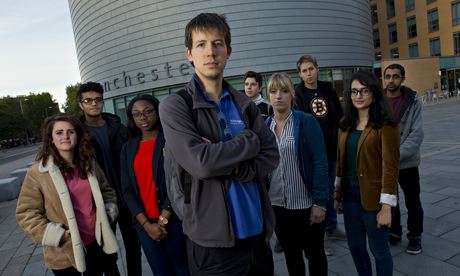by Maxie Allen in The Full Toss•
For months now, most of the mainstream cricket press have patronised and belittled England supporters who’ve dared to question their line on Kevin Pietersen.
We’ve said that too many hacks are:
(a) Prejudiced against Pietersen.
(b) In hock to the ECB.
(c) Far too ready to accept the ECB’s anti-KP spin as gospel truth.
(d) Instead of asking proper questions, have just believed any old rubbish Paul Downton has told them off the record.
They’ve not liked it one little bit. “Keyboard ranters” is how Derek Pringle describes the likes of us bloggers and Tweeters. The fourth estate see us impudent, paranoid, deluded, and in the grip of conspiracy theories.
They say we should shut up and be grateful for their privileged insight into the real workings of English cricket. In their minds, we must accept that KP is a bad man because…because they say so. They know the inside track, goes the claim – although they couldn’t possibly divulge the details.
Unfortunately for Her Majesty’s Press, the whole charade has today blown up in their face. The edifice has collapsed.
Yesterday, Sun cricket correspondent John Etheridge boasted this exclusive:
EXCL – Kevin Pietersen so upset with England treatment that he has returned his 100th Test gifts http://t.co/ckdPsP6tVe— John Etheridge (@JohnSunCricket) June 10, 2014
But there was a tiny problem: it was complete bollocks. As KP himself quickly made clear, by producing a photo of himself with the very presents he had supposedly forsaken.
LIES from @JohnSunCricket this morning! Who briefs you, John? Care 2 check ur facts instead of misleading the public? pic.twitter.com/jn5fH3mT0r
11:41 pm - 10 Jun 2014
Caught red-handed, Etheridge had no option but a humiliating climb-down:
@KP24 Was told categorically at Lord's yesterday that gifts were returned and in ECB offices. Weird - will investigate. Can only apologise.
No word yet from Ethers about the progress of his inquiry – he’s not Tweeted since.
And Pietersen had another salient point to make:
2/2 @JohnSunCricket whoever is briefing the cricket press has an agenda...aren't you intelligent enough to have realised that by now?
When Etheridge was presented with the strange claim about the gifts, why didn’t he ask KP for a response before publishing?
This story is surely just the tip of the iceberg. Remember, Etheridge was the chief hack behind the dossier tale – the absurd and as yet wholly unsubstantiated notion that the ECB had compiled a four-page document listing all Pietersen’s misdemeanours in Australia. He also reported vivid allegations about KP’s remarks in the near-mythical Melbourne team meeting.
Until he can convince us otherwise, we should assume that the ECB have repeatedly given Etheridge fictional stories about Pietersen, and he’s then obligingly printed them, verbatim.
And I bet you my house it doesn’t stop with the Sun man. This probably goes back years and has spread like a cancer across the entire mainstream press. Since 2009, where have all the anti-KP stories come from? ECB leaks, obediently served up as truth by the papers. For all we know, none of them at all were true.
But now the music has stopped. They’ve been caught with their hands in the cookie jar.
















